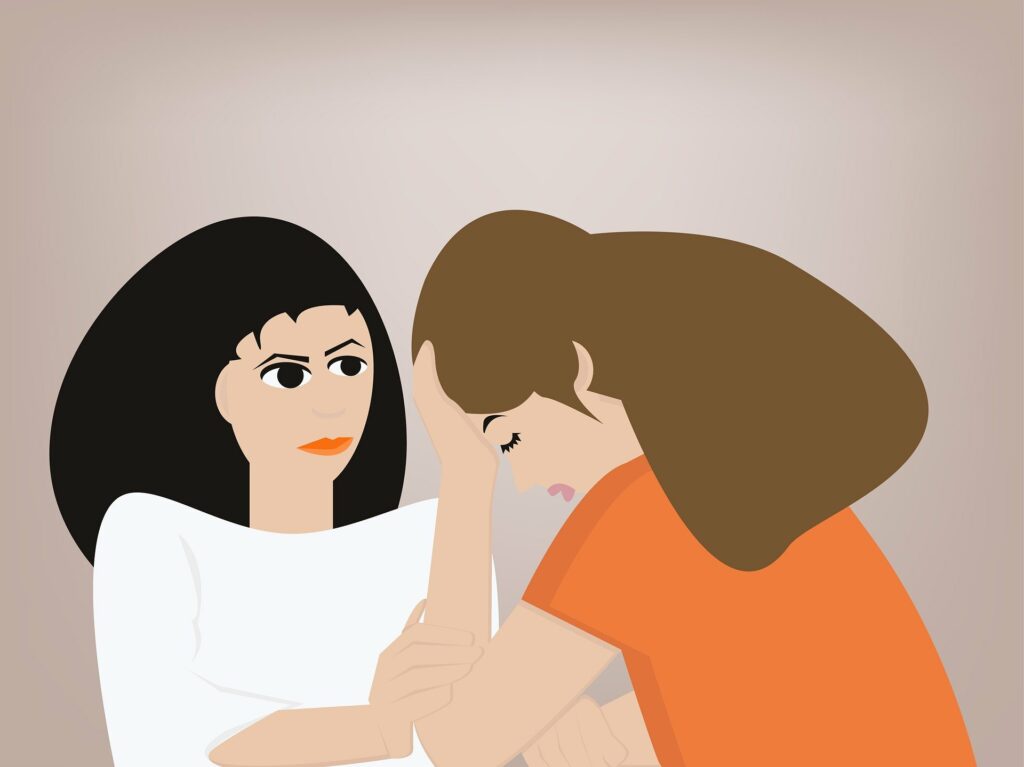Women suffering from ADHD (Attention-Deficit/Hyperactivity Disorder) often face unique challenges in managing their symptoms. ADHD is a neurodevelopmental disorder that affects women of all ages, but it is often overlooked or misdiagnosed in females. In this blog, we will explore the treatment options available for women with ADHD, including therapy, medication, and self-care strategies. We will highlight the importance of seeking help for proper diagnosis and treatment to effectively manage ADHD symptoms and improve overall well-being in women. Let’s dive into the world of ADHD treatment for women!
Contents
What Is ADHD?
 ADHD stands for Attention-Deficit/Hyperactivity Disorder. It is a neurodevelopmental disorder that affects both children and adults. ADHD involves a persistent pattern of inattention, hyperactivity, and/or impulsivity that significantly interferes with daily functioning in various settings, such as home, school, work, and social relationships.
ADHD stands for Attention-Deficit/Hyperactivity Disorder. It is a neurodevelopmental disorder that affects both children and adults. ADHD involves a persistent pattern of inattention, hyperactivity, and/or impulsivity that significantly interferes with daily functioning in various settings, such as home, school, work, and social relationships.
The symptoms of ADHD can vary widely from person to person and may include:
- Inattention: Difficulty paying attention, making careless mistakes, struggling to follow instructions or complete tasks, losing or forgetting things, and being easily distracted.
- Hyperactivity: Restlessness, excessive talking, difficulty sitting still, constantly moving or fidgeting, interrupting others, and having difficulty waiting for turns.
- Impulsivity: Impulsive behavior, acting without thinking about consequences, difficulty with impulse control, interrupting others, and engaging in risky or impulsive activities.
Is ADHD In Women Treatable?
Yes, ADHD in women, like ADHD in individuals of all genders, is treatable. ADHD is a neurodevelopmental disorder that can be effectively managed with appropriate interventions. Treatment for ADHD in women may include a combination of medication, behavioral therapy, and other supportive interventions. These can be tailored to the individual’s specific needs and circumstances.
It’s important to work with a qualified healthcare professional, such as a psychiatrist or a psychologist, who has experience in diagnosing and treating ADHD in women, to develop an individualized treatment plan that addresses the specific needs and challenges associated with ADHD. Treatment for ADHD can be highly effective in improving symptoms and helping individuals with ADHD lead successful, fulfilling lives.
Therapy Treatment For ADHD In Women
Therapy can be an important component of treatment for ADHD in women. While medication is often a primary intervention for managing ADHD symptoms, therapy can provide additional support, skills, and strategies to help women cope with the challenges associated with ADHD. Here are some common therapy treatments for ADHD in women:
Cognitive-Behavioral Therapy (CBT)
 CBT is a type of therapy that focuses on identifying and changing negative thought patterns and behaviors. It can help women with ADHD recognize and modify unhelpful thinking patterns, develop coping strategies for managing symptoms, and improve organizational and time-management skills. CBT focuses on both thoughts as well as the behavior of the person.
CBT is a type of therapy that focuses on identifying and changing negative thought patterns and behaviors. It can help women with ADHD recognize and modify unhelpful thinking patterns, develop coping strategies for managing symptoms, and improve organizational and time-management skills. CBT focuses on both thoughts as well as the behavior of the person.
Psychoeducation
Psychoeducation involves learning about ADHD, including its symptoms, causes, and management strategies. It can help women understand their condition and develop self-awareness, which can be empowering and lead to better self-management of ADHD symptoms.
Skills Training
Skills training, such as social skills training or executive function skills training, can be helpful for women with ADHD. Social skills training can help with improving social interactions, communication, and relationship-building skills. Executive function skills training can focus on improving time management, organizational skills, planning, and problem-solving abilities.
Supportive Therapy
Supportive therapy involves providing emotional support, understanding, and validation for the challenges that women with ADHD may face. It can help women develop coping strategies, build resilience, and improve self-esteem, which can be beneficial in managing ADHD symptoms.
Family or Couples Therapy
Family or couples therapy can be helpful for women with ADHD who have challenges in their family or interpersonal relationships. It can address communication issues, provide education and support to family members or partners, and help improve relationships by addressing ADHD-related difficulties.
Mindfulness-Based Therapies
Mindfulness-based therapies may involve mindfulness meditation or mindfulness-based stress reduction (MBSR). These practices may include Yoga, Deep breathing, meditation, retrospection, or exercises. It can help develop greater self-awareness, reduce stress, and improve attention and emotional regulation skills.
Medication Treatment For ADHD In Women
 Medication is a common treatment approach for ADHD in women, & it can be effective in managing the core symptoms of ADHD. Here are some common types of medication used in the treatment of ADHD in women:
Medication is a common treatment approach for ADHD in women, & it can be effective in managing the core symptoms of ADHD. Here are some common types of medication used in the treatment of ADHD in women:
- Stimulant Medications: Stimulant medications are the most commonly prescribed medications for ADHD. They work by increasing the levels of certain neurotransmitters. Such as dopamine and norepinephrine, in the brain, which can improve attention, focus, & impulse control. Examples of stimulant medications used in the treatment of ADHD include methylphenidate (e.g., Ritalin, Concerta) & amphetamine (e.g., Adderall, Vyvanse).
- Non-Stimulant Medications: Non-stimulant medications can also be used in the treatment of ADHD, either as an alternative for those who do not tolerate stimulants or as an adjunct to stimulants. Examples of non-stimulant medications used for ADHD include atomoxetine (Strattera), guanfacine (Intuniv), & clonidine (Kapvay).
- Combination Medications: Some medications for ADHD may combine different types of medications, such as a stimulant & non-stimulant, to provide a synergistic effect. For example, medications like Mydayis & Adhansia XR combine extended-release forms of amphetamine salts with other medications to provide longer-lasting symptom relief.
- Hormonal Medications: In some cases, hormonal medications, such as estrogen or progesterone, help manage symptoms that may fluctuate with hormonal changes during the menstrual cycle, pregnancy, or menopause.
Remember! It’s important to use medication only under the guidance of a healthcare professional. Some medications can have side effects or may not be appropriate for everyone.
Self-Care Tips For Women With ADHD Issues
 Self-care is an important aspect of managing ADHD symptoms and promoting overall well-being. Here are some self-care tips for women with ADHD:
Self-care is an important aspect of managing ADHD symptoms and promoting overall well-being. Here are some self-care tips for women with ADHD:
- Create a Routine: Establishing a daily routine can help women with ADHD create structure and predictability in their lives. This can include setting regular times for sleep, meals, exercise, work/study, and leisure activities. Having a consistent routine can help with time management, and organization, and reduce decision-making fatigue.
- Practice Time Management: Time management can be challenging for women with ADHD, so developing strategies to manage time effectively can be beneficial. This can include using timers or alarms to keep track of time, breaking tasks into smaller, manageable steps, and using calendars or planners to schedule and prioritize tasks.
- Get Regular Exercise: Regular exercise improves cognitive function, mood, and overall well-being. This can be particularly beneficial for women with ADHD. Engaging in physical activity, such as walking, running, swimming, or practicing yoga, can help promote focus and concentration.
- Practice Mindfulness: Mindfulness techniques, such as deep breathing, meditation, or mindfulness exercises, can help women with ADHD improve self-awareness, focus, and emotional regulation. Mindfulness can also help reduce stress and anxiety, which are common challenges for individuals with ADHD.
- Seek Social Support: Building a supportive network of family, friends, or peers can be beneficial for women with ADHD. Talking to trusted individuals about challenges, seeking encouragement, and receiving practical support can help women with ADHD manage their symptoms and improve their well-being.
- Prioritize Self-Care: Women with ADHD need to prioritize self-care and make time for activities that bring joy and relaxation. This can include engaging in hobbies, practicing self-compassion, getting enough sleep, and setting boundaries to prevent burnout.
Conclusion
In conclusion, ADHD in women is a neurodevelopmental disorder that can have a significant impact on daily functioning. However, with proper treatment, including therapy and medication, women with ADHD can effectively manage their symptoms and improve their quality of life. Self-care strategies, such as creating routines, practicing time management, prioritizing self-care, and seeking social support, can also be beneficial. If you or a loved one have ADHD, it’s important to seek help from a qualified healthcare professional for an accurate diagnosis and tailored treatment plan. Remember, help is available, and managing ADHD is possible with the right support. Seek help today.
For more information, please contact MantraCare. ADHD is a neurodevelopmental disorder involving difficulty paying attention, hyperactivity, and impulsivity. If you have any queries regarding Online ADHD Counseling experienced therapists at MantraCare can help: Book a trial ADHD therapy session.


